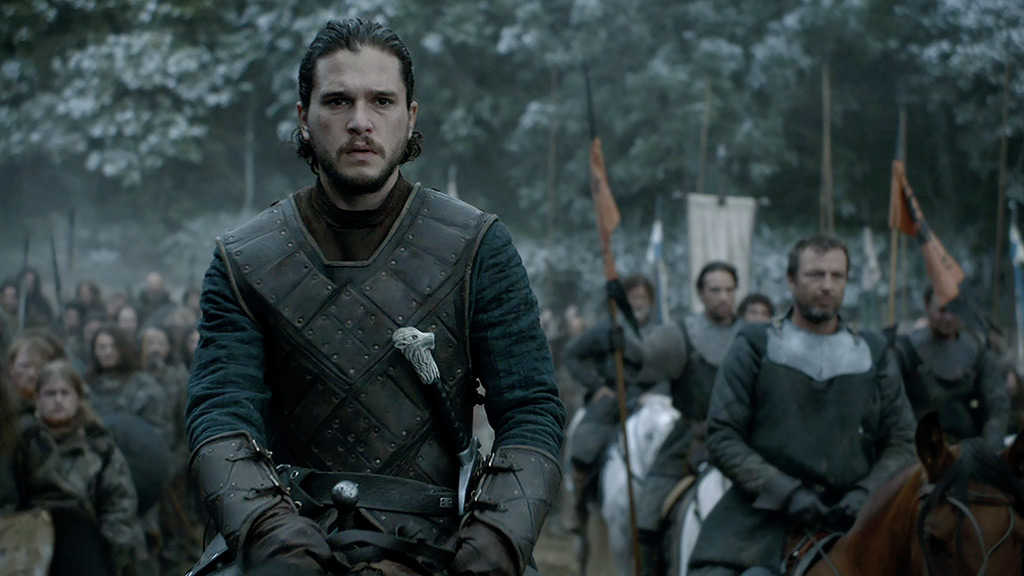Spoilers for the latest episode of Game of Thrones are ahead, so if you aren’t caught up with “Battle of the Bastards,” feel free to take care of that now. I’m fine waiting – I can use the time to walk far enough from camp that no one can hear me s**tting my guts out.
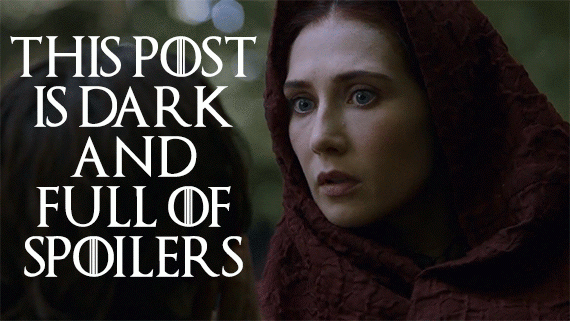
Game of Thrones has never been a show that shies away from creating sweeping, epic battle sequences – whether that be the Battle of the Blackwater in Season 2, the Battle for Castle Black in Season 4, or the particularly harrowing battle from last season that we will forever refer to simply as Hardhome. But with “Battle of the Bastards,” Game of Thrones has truly and decisively outdone itself.
With a budget exceeding $10 million dollars (this is just for the battle sequence, mind you – not the entire episode), 600 crew members (!), 500 extras (!!), 70 horses, 4 separate film crews, and over two dozen stunt personnel, “Battle of the Bastards” is undoubtedly the most ambitious action sequence the small screen has ever seen. Oh, and it took 25 days to film – over twice the amount of time in which most episodes of dramatic television are filmed (9-12 days). All of these numbers reflect what one might see with a big-budget feature film production, but with cable television, this is an unprecedented occurrence. Kudos to HBO for ponying up the cash, and even more kudos to the cast, crew, and production team for pulling it off.
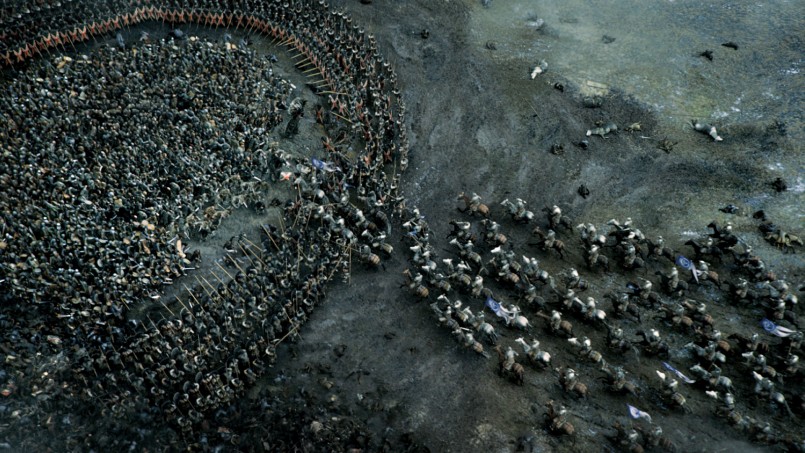
With a battle scene of this scale, showrunners DB Weiss and David Benioff (who also wrote the episode) called in one of their most tried and true directors – Miguel Sapochnik, who helmed the aforementioned “Hardhome.” Of the episode, Sapochnik says:
Every battle on Thrones is unique. I think that’s why [Benioff and Weiss] keep doing them. In the case of ‘Battle of the Bastards’ – or ‘BOB’ as we affectionately called it in production – David and Dan wanted to do a thing of spectacle, a strategic pitchfield battle they hadn’t had the resources to do back in season 1 or 2. I was particularly interested in depicting both the horror of war and the roll of luck in battle.
And seven hells, did Sapochnik capture both the horror and the luck that has defined so many battles, both in Westeros and in our own world. Heroes may emerge when the dust on the battlefield settles, but it always comes at a cost that can only be measured in the expenditure of human lives. And for every heroic deed there are 100 times the number of instances of dumb luck, be it of the good variety or otherwise. We see the cost of war writ large across Jon Snow’s face before the battle is anywhere close to being over, a haunting resignation to the idea that winning is never really winning at all. The only thing gained in victory is seizing the opportunity to kill again tomorrow, and taking that opportunity away from the vanquished foe. Jon may have won the battle, but the real war hasn’t even started yet.
But I digress. Let’s get to it.
HOW DANY GOT HER GROOVE BACK
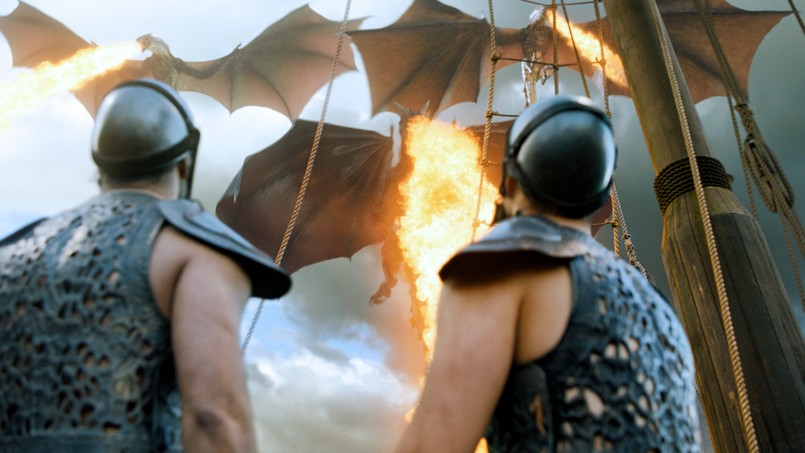
For the first time in a long time, I’m invested in Daenerys’s story, and as tedious as her wanderings in the Dothraki Sea were this season, it’s good to see her back in Meereen and taking control of the situation with the Great Masters of Slaver’s Bay. For as little screen-time as Meereen received this episode, a whole lot got resolved. Not only is the city no longer under attack, but Dany has actually secured a fleet large enough to get her forces to Westeros. And, with a bit of help from her dragons and her counselors, she did it on her own.
This is the Dany we’ve been waiting for. Her lessons have been hard-learned, but they’ve been learned all the same. She knows she holds within her the power to take the Seven Kingdoms, but she also knows she needs her advisors to help draw that power out. Tyrion aids with diplomacy, while Massendei and Grey Worm remind her what it means to be compassionate (Grey Worm’s throat-slashing of the Great Masters notwithstanding, of course). And now, with her alliance with the Greyjoys, I have a pretty good feeling that Dany will be headed for Westeros by the end of the season.
HOW JON AND SANSA GOT THEIR HOME BACK
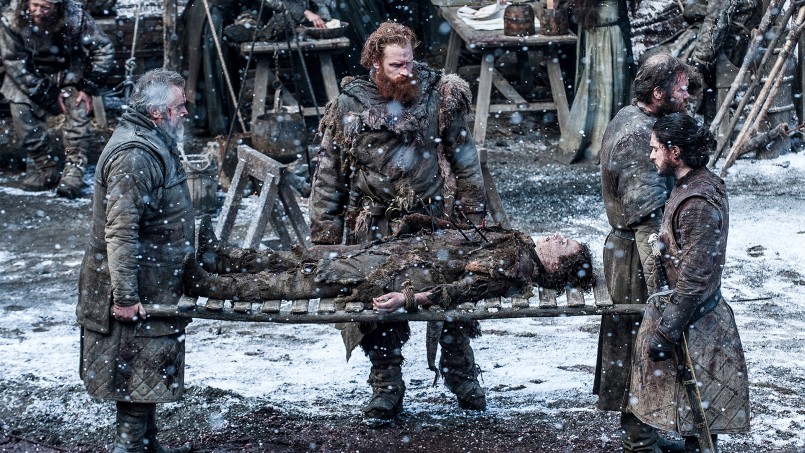
As much as I loved this episode, I do have one little bugaboo I need to address, and that bugaboo has a name: Rickon Stark. Earlier in the season, Smalljon Umber gave Rickon to Ramsay Bolton as a “gift” – a token to show fealty to Roose’s bastard son. And then we didn’t see Rickon again until tonight, only to see him shot down by Ramsay.
None of this was unexpected (Sansa knew just as well as we did that Rickon had no real chance of survival), and so I have to ask: why bring Rickon back into the narrative at all? It certainly played for shock value as that arrow tore through Rickon, but how did any of this add to our understanding of Ramsay as a character? We’ve known for three full seasons that Ramsay is the worst of the worst, and Rickon’s death did little to make me cheer harder when Ramsay finally got his due. Sure, Rickon’s capture served as a catalyst for Ramsay to draw Jon into battle, but I can’t help but feel that there were tidier ways to accomplish this. I mean, Rickon was exploited as a plot device to the extent that Weiss and Benioff didn’t see fit to give him a single line of dialogue in either episode he was in.
Also, if you’re ever running away from someone firing arrows at your back, don’t run in a straight line. This is poor Rickon’s lesson to us all.
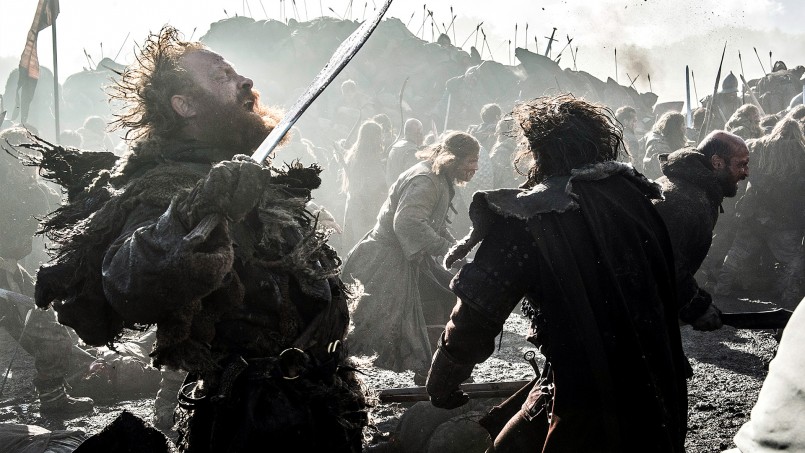
As we ponder the theme of the futility of war, let us turn to the scene between Jon and Melisandre on the eve of the battle. When Jon asks her what kind of god would bring someone back from the dead so they can go kill more people – one that allows for so much pain and violence and heartbreak – she tells him, “The one we’ve got.” We’ve seen many religions in Game of Thrones, from the Old Gods to the Faith of the Seven to the Drowned God, but none of them have proven to be real in any concrete sense of the word.
The same cannot be said of the Lord of Light, what with shadow babies and Jon’s resurrection and all. But if the Lord of Light is real, what is his (or hers, or its) endgame? Every time the Lord of Light expresses itself, chaos ensues, war erupts, and humans suffer. I’m not expecting anything close to a happy ending for Game of Thrones, but I’m beginning to think it might be the other way around: it’s going to end on a bleak, dark, and very sad note. Westeros is, after all, a world where boys are shot in the back with arrows; where girls are raped brutally and repeatedly; where people are betrayed and murdered under banners of truce; and where good and noble men lose their heads – and we’re only talking about the Stark family.
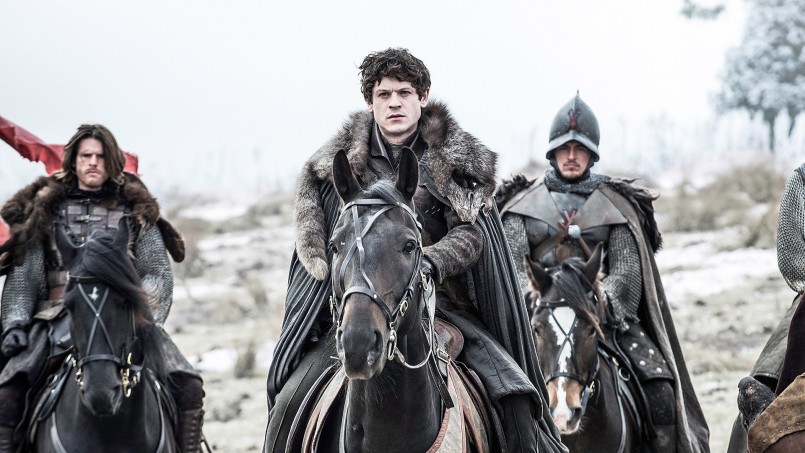
Even Ramsay’s death was bleak as hell. For three seasons we’ve hated this guy, and we’ve waited for the moment we could relish in his demise. But when that moment finally came in “Battle of the Bastards,” I didn’t feel the relief I’d expected. What I felt, and still feel, is pity – pity for him and his awful, wasted life, but also for Sansa, who has been taken so low by life, and by Ramsay himself, that she grins at the sound of his screams of pain.
Let me be clear here: In no way am I saying that Ramsay didn’t deserve what was coming to him. He has always been beyond redemption, and he needed to be killed. Nor am I saying that Sansa shouldn’t feel relief at knowing Ramsay can no longer harm her. What I am saying is that the horrors of Game of Thrones so often and so closely mirror the horrors of our own world that it’s sometimes hard to revel in the violence – even when it’s inflicted on someone as purely evil as Ramsay –because that violence just feels too damn real.
The world of Game of Thrones might be a place of fantasy, replete with dragons and White Walkers and blood magic, but at it’s core it tells a very human story that looks a lot like our own world. This is a credit to the writing – both for George RR Martin’s books, and for the show that Weiss and Benioff have created around them. We usually turn to entertainment as a form of escapism – a place we can go to forget about the horrors of the world, if even for just a little while. With Game of Thrones, however, we are given a medium in which we aren’t asked to escape these horrors, but to confront them. When we cheer at Ramsay’s death, we become complicit in the bloodshed, which in turn gives us the opportunity to think about how we relate to the crazy world in which we find ourselves living, and what kind of message we want to carry forth.
As such, we’re damn lucky to have a show like Game of Thrones.
JUST A FEW CLOSING THOUGHTS
- As the last of his kind, Wun Wun the giant had few legitimate options beyond going down swinging. With that said, I’m far more devastated at his loss than I would have guessed.
- Dany and Yara were doing some serious flirting in the throne room, but to what end? Dany said she’d never marry another man, but women seem to be fair game. If nothing else, the Seven Kingdoms and the Iron Islands would get along for the first time in forever.
- I was really hoping that Smalljon Umber was secretly on Team Stark, and that his turning over Rickon and Osha was part of a long con to gain Ramsay’s trust. Nope! At least Tormund took care of the problem.
- Umber may have been dealt with, but what about the sniveling Lord Karstark? That guy could use a smack in the mouth.
- Melisandre once told Stannis (in “The Gift”) that in the flames she had seen herself walk along the battlements of Winterfell, and that she’d seen the Bolton banners lowered to the ground. She was wrong about Stannis, but she was right about everything else.
4.75/5 stars: A few narrative misses aren’t enough to sink “Battle of the Bastards,” one of the overall finest episodes of Game of Thrones to date.

